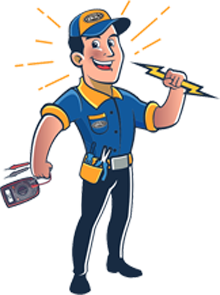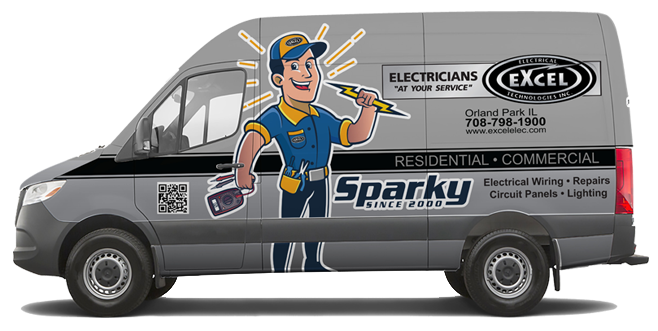
How to Beef Up Home Electrical Safety
By: Omar
You power your home with energy, but do you practice electrical and appliance safety? The US Consumer Product Safety Commission reports that 31,000 home electrical fires occur every year, and with more than 180 cases involving electrocution and other electrical accidents, home electrical safety is too important to ignore.
Tips for Electrical Safety
Always follow appliance instructions.
Understanding home appliance safety improves both the performance of your device and your personal safety. Should any appliance give you even a slight electrical shock, stop using it until a qualified electrician checks it for problems.
Watch out for overloaded outlets.
Overloading an electrical outlet is a common cause of electrical problems. Check all outlets to ensure they are cool to the touch and are in proper working order. Do not use extension cords or multi-outlet converters for appliances.
More useful tips
- Only plug one heat-producing appliance into an outlet at a time.
- Hot outlets should be checked by qualified electricians.
- Remember that power strips only add outlets—they do not change the amount of power the outlet receives.
Replace or repair damaged electrical cords.
Damaged power cords can cause fires and electrocution. All power and extension cords should be checked regularly for signs of fraying and cracking, and they should then be repaired or replaced as needed. Power cords should not be stapled into place or run under rugs and furniture. Cords under rugs pose a tripping hazard and can overheat, while furniture can crush cord insulation and damage wires.
The use of extension cords on a regular basis may mean that you don’t have enough outlets to fit your needs. Have a qualified electrician who understands electrical safety install additional outlets in rooms where you often use extension cords.
Unplug all your unused appliances to reduce potential risks.
When an appliance is not in use, unplug it. Not only does this save you power, but also protects appliances from overheating or power surges.
It’s often difficult to remember to unplug unused appliances, but the new generation of smart plugs enables you to set power schedules for each outlet.
Give your appliances proper space for air circulation to avoid overheating.
Without proper air circulation, electrical equipment can overheat, short out, and become an electrical fire hazard. Make sure your appliances have proper air circulation and avoid running electrical equipment in enclosed cabinets.
Ensure that all your exhaust fans are clean.
Some appliances have exhaust fans, which can get dirty or clogged with debris and make the appliance work harder. This can shorten the life of the appliance and can lead to overheating or, worse yet, a fire. Cleaning exhaust fans regularly helps prevent such hazards.
Check that you’re using the correct wattage in all your fixtures and appliances.
Using the right bulbs can prevent electrical problems, so check all lamps, fixtures, and appliances to ensure you’re using the correct wattage. If a light fixture has no wattage listed, use 60-watt bulbs or less. For unmarked ceiling fixtures, choose 25-watt bulbs.
Be aware of heaters and water heaters.
Combustible items should be kept away from portable heaters and built-in furnaces. For furnace safety, store combustibles far away from any heating appliances. Portable heaters should not be operated close to drapes, and to prevent tipping, they should only be placed on a stable surface.
There’s quite a bit more to ensuring home electrical fire safety, and Excel Electric and help ensure your home and family are as free from harm as possible. Contact us today for a whole-house electrical safety inspection so we can help you prevent or abandon costly errors.






